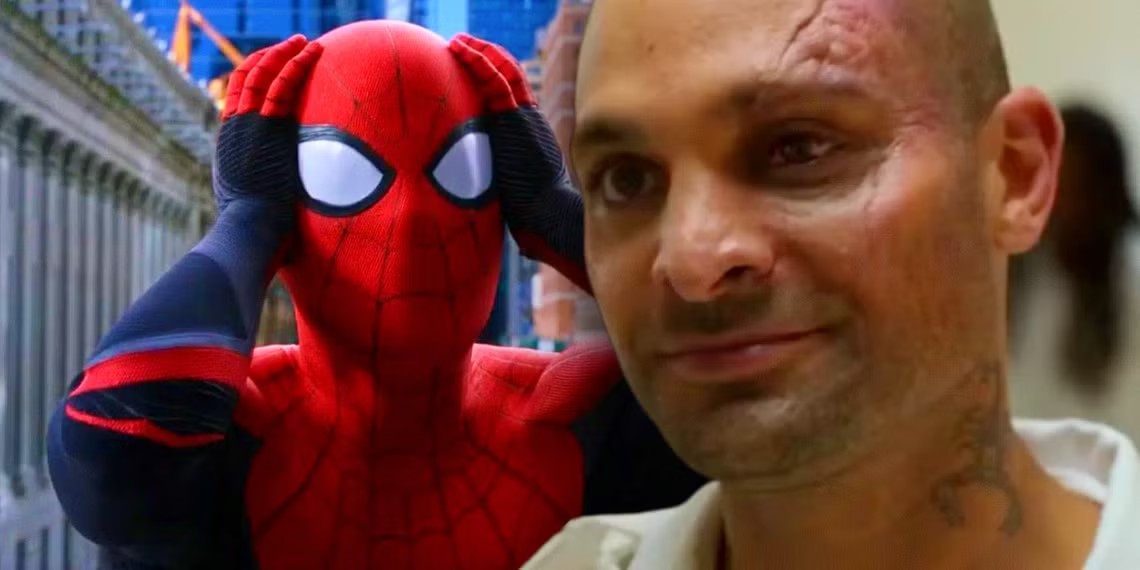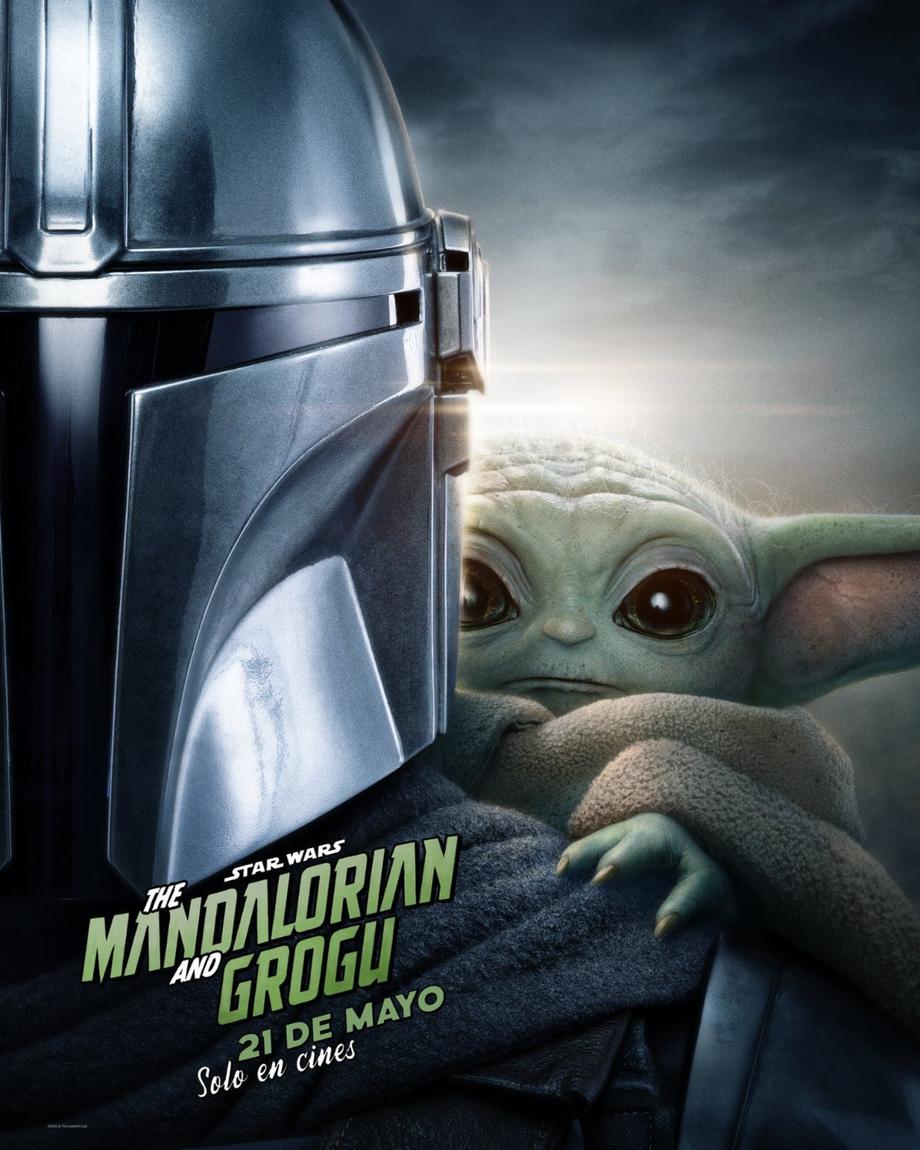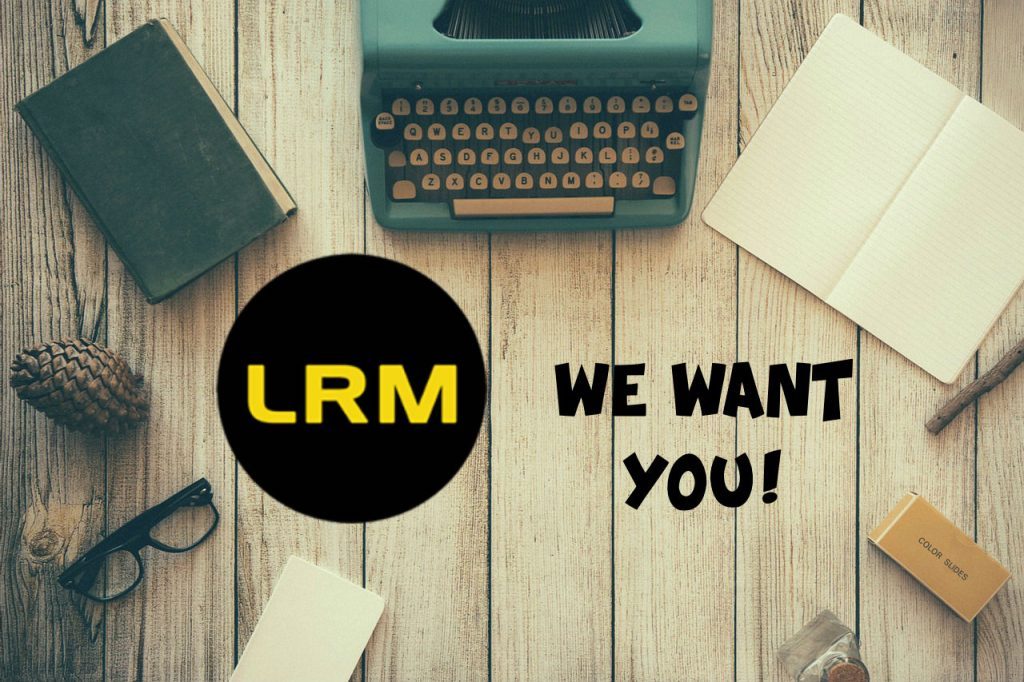![]()
For nearly thirty years, Daniel Clowes has been at the forefront of San Francisco’s second wave of underground cartoonists, first making waves with his anthology comic, Eightball, which ran for fifteen years. One of the many serialized comic stories in that comic was Ghost World, which was turned into a popular indie movie in 2001, directed by Terry Zwigoff and starring a very, very young Scarlett Johansson.
Five years later, Zwigoff and Clowes reteamed for the comedy Art School Confidential, also based on an Eightball story, and around the same time, Clowes shifted away from Eightball to writing and drawing stand-alone graphic novels.
One of those graphic novels was 2010’s Wilson, which Clowes has now adapted into a movie starring Woody Harrelson as its cantankerous title character, who goes on a quest to reconnect with his ex-wife Pippy (Laura Dern), and find their now-teen daughter Claire (Isabella Amara). It’s the type of offbeat dark comedy Clowes has perfected in his comics and earlier movies.
LRM sat down with Clowes at the New York junket for his new movie, noting at first that the last time we spoke with him was for his previous film Art School Confidential, almost 11 years prior…
LRM: I’ve spoken with a few authors of novels that were adapted to film, and many of them want to be hands off, since they’ve already written the novel and don’t feel the need to tell the story a second time. You’ve now adapted your own work a couple times, so I wascurious about the thought process that goes into that, and whether you need to always know you want to change stuff?
Daniel Clowes: I guess if you write an actual novel-novel, you’re so immersed in that world, you’re writing all the descriptions and when you write a graphic novel, it’s a different thing. To turn it into a movie is, I don’t know, it’s such a different medium that it’s interesting to me. I don’t know. I’ve never written a real novel, so I don’t know how that feels to just be in that world of words like that. I just felt Wilson, it’s the sparsest thing I’ve ever done. It’s just a series of one-page comic strips about this character where there’s all this missing information. They leap from one event to the other and there’s a plot that you start to see as you hold it at a distance.
I felt like that plot, and the character who was so strong, that I knew him–I knew what he would say about any subject. He was just alive in my brain somewhere. I felt like those two things were exactly what you’d want to write a movie. If you gave me those two things, that’s what I would look for when I was starting to write a movie; It felt like a great place to start. I didn’t feel beholden to the book at all, but I wound up going back to the book over and over, and I would write things for the movie that would go way off in another direction and then I’d go no, the book has a certain purity to it, that I would go back to over and over. It’s pretty close to the book.
LRM: I feel like a lot of your work is very specific to locations and very specific to the people around that location, but the movie wasn’t shot in the same location as where the graphic novel was set.
Daniel Clowes: The book is specifically about Oakland, California where I live. It’s really about the neighborhood I live in. The entire script is written with Oakland locations specifically in all the headings, and then when they went to try to shoot in Oakland, it was so prohibitively expensive to shoot there, which is such an Oakland thing that they would thwart this movie being made. The other thing that had happened, I wrote it in this pre-gentrification version of Oakland, you see where Wilson goes to prison and then he comes back and everything has changed or it’s starting to change. Oakland had already changed by the time they would have been filming there, so they looked all over the country and found Saint Paul, Minnesota, which is very much an analog to Oakland. It’s the lesser, smaller city that’s connected to a bigger, more well-known city, more prosperous city. It hadn’t really gone through that gentrification thing, although you can feel it coming. It really was, in a way, a better stand-in for Oakland than latter-day Oakland was for itself in a way, which was interesting. At first I thought that will never work and I was shocked at how well it matched up when I saw the film.
LRM: How did you end up with Craig Johnson directing? Did you just see his earlier movie, “The Skeleton Twins,†and realize he was the guy?
Daniel Clowes: It was the studio guys. I hadn’t seen the film and the guys at Searchlight were like, “We love this guy, Craig,” and told me to go see his film. Weirdly, it was playing in the theater two blocks from my house. I went at a 10 o’clock screening and I was the only one in the theater. It was late in the run.
LRM: Oh. Well, there you go.
Daniel Clowes: I had that weird experience of (it just being) me and the projectionist and I thought, “You know, this guy is really good with actors and that’s what this movie is all about, getting the right actors.†I had one meeting with him and we just talked about casting and stuff like that, and I felt like I get him. I’ve met with directors who I just didn’t connect with at all, and with Craig, I felt like I have a connection to him.
![]()
Woody Harrelson (left), Daniel Clowes (center) and director Craig Johnson on the set of Wilson.
LRM: Did you have to change a lot when Woody came aboard? I talked to other writers who basically say that they spend a lot of time getting the screenplay exactly right, and then Woody comes along, he just nails it and brings something to his character maybe they didn’t see in the first place.
Daniel Clowes: The way it’s written is very much like a play. You could put in any number of different actors and have a completely different vision of it, in the same way you could do that with Eugene O’Neill. He fills in a certain part of Wilson that’s not necessarily apparent in the screenplay or in the comic, which is just that hardy, old-fashioned quality. That, “Hello friend.” That kind of thing that’s in the comic and that anybody else I feel that might sound ironic or like he’s being a jerk like, “Hello.” Like it’s sarcastic or something.
LRM: Especially in New York. If anyone talks to you in New York…
Daniel Clowes: You’d be like…You’d pull out your gun.
LRM: Yeah, exactly, or you’d pull out your wallet thinking they’re going to rob you.
Daniel Clowes: “What do you want from me?†Yeah, Woody can do that and make you feel like, oh yeah, he means that. He’s got that old world quality and I thought that was such a great thing to bring to the character.
LRM: Also, the women around Wilson really makes this movie, and the actresses cast also do that.
Daniel Clowes: That was 100% what makes the movie for me, because in the comic the women are very much hard to read and Wilson is taking up all the air. He does all the talking and they’re barely able to get a word in edgewise. That would work for a one-scene joke in the movie. That his ex-wife is this quiet, sullen, introvert, but it wouldn’t have made for anything beyond that, so really, having Laura Dern turn that into a real character almost single-handedly, that was a huge thing. When you get one of the best actresses ever to live, that’s always a boon to your film.
LRM: What about Claire? Was Claire and the search for his daughter in the original comic as well?
Daniel Clowes: Mmm-hmm, yeah. All that is part of it.
LRM: I was wondering about that character and what Isabella Amara brought to Claire, because this was one of the first things she’s done?
Daniel Clowes: First biggish role, yeah. I was there when she was filming some of her big scenes. I just went to the set for two days, and it was when she was shooting. I remember Woody and Laura Dern going like, “She’s the best actress in the film.” They were really blown away. She’s got a real natural something about her and that’s a tough role for somebody her age. You’ve got to be really self-possessed, and be willing to be really vulnerable and stuff. She did it all.
LRM: I was going to ask you about going to the set. How much time did you spend on the set?
Daniel Clowes: Yeah. I was very much a tourist, not taking part.
LRM: I always remember that scene of Nicholas Cage’s character in “Adaptation†where he shows up on set and no one knows who he is. In your case, this entire movie comes from you and your comic and I was curious how much you wanted to be involved.
Daniel Clowes: You know, when I did Ghost World and Art School Confidential, I was hanging around the whole time, trying to get in every once in awhile, “You should do this,†trying to influence it. Really, when you’re around the whole time, everybody is like, “What is the writer doing here?” It’s confusing. You need that military structure where we just look at the director, and if you look at the writer and he’s shaking his head and the director has got his thumbs up, then you feel the actors get confused. It’s just not a good thing. After Art School, I decided, you know what? I don’t really like even being around the set. It’s frustrating. I just want to write the thing, hand it off, and go to the premiere. To me that’s fun. If they change it entirely, I’m cool with that. If they keep it exactly as is, that’s fine. It’s their thing. Going to the set for just two days, everybody is like, “It’s the writer!” Everybody is all excited, they’re like, “Oh it’s so great to meet you.” It was so different than when you’re hanging out the whole time.
![]()
LRM: Well, it is your screenplay that got everyone involved, including Woody. I imagine they’d like to at least meet you at one point or another.
Daniel Clowes: Yeah, it was great. Actually, both Laura Dern and Judy Greer were like, “This is the first graphic novel I’ve ever read.” I was like, “Well just stop there.”
LRM: You have had this great relationship with Terry Zwigoff, having done two movies with him, so was this very different working with a new director?
Daniel Clowes: Yeah, Terry is an old friend. Well, it’s different just in that I’m not talking to him on the phone all day about them. I felt like Craig and I could be really good friends if we lived near each other. We could have had a relationship like that, but that just wasn’t the way I wanted to do the film. It wasn’t the same kind of thing as Terry and I had.
LRM: You’re adapting your graphic novel “Patience†right now?
Daniel Clowes: Yeah, I’m working on a script. It’s very different than everything else, though.
LRM: One thing I’ve always wanted to ask you about was shifting from doing serialized stories in “Eightball†to your current way of doing stand-alone graphic novels. Has that changed a lot about how you approach storytelling, your art, or is it just easier just to focus on one story at a time?
Daniel Clowes: It’s more just what I got interested in. A couple years ago I thought that I really loved doing the short stories, because you do it, you’re done, you get it out of your life and you can switch to something new. It just keeps you endlessly energized. Every idea I’d start to think of for a short story, I’d start working on it and it would all of a sudden be 40 pages. It’s just the way I was working. I just had so much to put into everything, and I couldn’t pare it down. I’m actually trying to work on something now that’s a bunch of shorter stories that add together to a bigger book.
LRM: By the way, I noticed that “Wilson†isn’t available for download to read on Kindle or iPad…
Daniel Clowes: I don’t really care about people reading it as much as I really want people who will go buy a book to read it. That’s the experience I want to impart is like, I wrote this book and you’re sitting alone, un-distracted, reading a book. I don’t want you to…If you read it on a Kindle, the colors, I don’t know what the colors look like on your iPad or whatever. It’s like I want it to look the way I intended it to look. One day I’ll probably put all this stuff online, but I feel like that just gets lost in that world. I want it to be like it’s a little hard to get.
LRM: Fair enough. Fair enough. Well, my copy is coming from Amazon tomorrow. It was supposed to be here yesterday, so I could have read it before talking to you.
Daniel Clowes: There you go. That’s all right. I hope you like it.
LRM: I’m sure I will. I generally like your stuff, and that’s one of the reasons I enjoyed the movie. I know critics have been tough on it, but I probably was into it, because I really know your voice from other work, so I knew that it was going to be a little off and different, which is what I like. While other people, I guess, just want something very straight and traditional.
Daniel Clowes: Yeah. When the book came out, a lot of people really hated the book, and it was only because they just hated the character, and it was really interesting. I never had that before. I remember people going, “I read the book like six times, and I still just hate this character.” I go, “Man, if you read it six times, I win.”
LRM: Well, if they bought it six times, you would win even more.
Daniel Clowes: Yeah, that’s true…If only.
LRM: The thing about Woody as this character is that you really like him being unlikeable. The less likable he is, the more you like him, which is just such an odd thing.
Daniel Clowes: Right. Yeah. To me, I lovewatching characters like that, but I know it’s not for everybody.
LRM: Yeah, absolutely. Well, it’s great seeing you man.
Daniel Clowes: Good to see you. I’ll see you in another 11 years.
LRM: Hopefully, “Patience†won’t take that long because we’re both getting older…
Daniel Clowes: I hope not. We’re not going to make it too much longer…
Wilson opens in select cities this Friday, March 24. You can read our interview with actress Judy Greer in the link below, and look for our interview with director Craig Johnson next week.
RELATED: Judy Greer: Making Wilson with Woody Harrelson and More!
Â
 FOR FANBOYS, BY FANBOYS
Have you checked out LRM Online’s official podcasts and videos on The Genreverse Podcast Network? Available on YouTube and all your favorite podcast apps, This multimedia empire includes The Daily CoG, Breaking Geek Radio: The Podcast, GeekScholars Movie News, Anime-Versal Review Podcast, and our Star Wars dedicated podcast The Cantina. Check it out by listening on all your favorite podcast apps, or watching on YouTube!
Subscribe on: Apple Podcasts | Spotify | SoundCloud | Stitcher | Google Play
FOR FANBOYS, BY FANBOYS
Have you checked out LRM Online’s official podcasts and videos on The Genreverse Podcast Network? Available on YouTube and all your favorite podcast apps, This multimedia empire includes The Daily CoG, Breaking Geek Radio: The Podcast, GeekScholars Movie News, Anime-Versal Review Podcast, and our Star Wars dedicated podcast The Cantina. Check it out by listening on all your favorite podcast apps, or watching on YouTube!
Subscribe on: Apple Podcasts | Spotify | SoundCloud | Stitcher | Google Play



